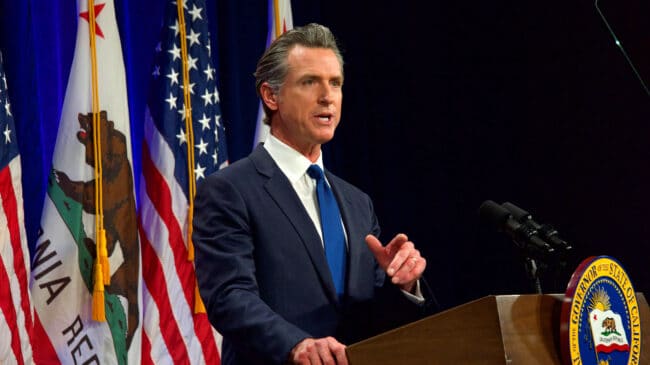Last month, Gov. Gavin Newsom officially ended California’s COVID-19 “State of Emergency.” While ending that emergency order was long overdue, California has failed to permanently change many of the laws and regulations that were waived or altered during the COVID-19 pandemic to help temporarily allow patients to access needed health care remotely.
In the future, telehealth could help alleviate California’s growing shortage of primary care providers and ensure that all residents have access to the health care they need, regardless of where they live. Unfortunately, California’s antiquated licensing rules are preventing the state from reaping the full benefits of this burgeoning technology.
A recent Reason Foundation report found that California’s telehealth policies fail to meet best practices for promoting patient access and giving flexibility to health care providers. California’s most significant need for improvement is its approach to telehealth services that are provided across state lines. California requires out-of-state health care professionals to obtain an additional California-issued license to provide telehealth services to people in California. This antiquated licensing scheme undermines one of the principal benefits of telehealth: the ability for patients to access quality care regardless of their, or their doctor’s, physical location.
Today, over eight million Californians, roughly 20 percent of the state’s population, live in areas that have an inadequate number of primary care professionals. The U.S. Department of Health and Human Services estimates that an additional 1,380 primary care physicians are needed to address the current shortfall, which is most acute in rural towns where residents are often forced to travel long distances to receive health care.
California’s workforce shortages in the health care industry are expected to worsen over the next decade, driven partly by California’s aging population. By 2030, a statewide shortage of 4,100 primary care clinicians is projected. So, making it easier for out-of-state health care professionals to provide remote care to Californians could play a crucial role in helping patients and alleviating the shortage.
Eliminating barriers to telehealth would also enable Californians in all parts of the state to access specialized care without necessarily having to pay for travel or take time off work. As it stands, Californians have limited access to medical specialists in other states unless they are willing and can afford to travel to that specialist’s location or the specialist is willing to undergo the burdensome process of obtaining an additional license from California.
Thirty-eight other states, including Texas, Colorado, and Utah, have already tried to promote the use of telehealth across state lines by joining the Interstate Medical Licensure Compact. The compact helps expedite the process for physicians in member states to receive medical licensure in other member states. Similar arrangements exist for other health care professionals, including nurses, psychologists, and physical therapists, but California has yet to join any multi-state licensure compacts.
Florida has pioneered an even better approach for enabling cross-state telehealth services. In 2019, Florida created a simple telehealth registration process for out-of-state health care providers. To register, a provider just has to submit proof that they are legally licensed to practice in another state. This system is preferable to multi-state compacts because it does not require action by other states. According to Florida Department of Health records, 5,424 physicians have active telehealth registrations in Florida. In efforts to improve health care during the pandemic, Arizona, Delaware, and Vermont permanently adopted similar telehealth registration processes.
California should embrace emergent technological innovations in health care and remain open to the discoveries that lie ahead. The state’s antiquated regulations and licensing rules prevent it from fully realizing the potential of telehealth to address the primary care physician shortage and improve health care access for all Californians, especially those in rural areas.
Joining multi-state licensure compacts or implementing a simple telehealth registration process would be an important step toward ensuring Californians have access to the health care they need, regardless of where they live.
A version of this column was first published in the Orange County Register.

